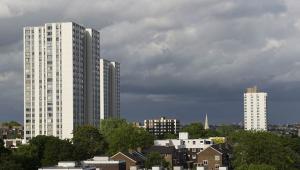The LGA revealed today that nine out of ten English councils have either approved or are considering plans to raise additional revenue for social care, making use of the powers, announced at the Autumn Statement, to increase council tax by 2% in 2016/17.
It warned that the majority of this extra £372m in income might have to be spent meeting commitments under the government’s National Living Wage plans. According to LGA estimates, it would cost England’s 152 social care authorities at least £330m to cover the increased costs to care providers.
LGA vice chair Nick Forbes said: “The government expects local authorities to raise council tax by nearly 4% next year, including a 2% precept to pay for under-pressure social care services. With no council tax freeze grant next year, a government-funded settlement that assumes council tax increases and growing funding pressures, many councils feel they have no choice left but to put up council tax.”
He added that as well as rising council tax bills, communities should prepare themselves for a potential drop in the quality and quantity of services on offer.
“Councils will continue to do all they can to maintain the services that older and vulnerable people rely on but services supporting the elderly and disabled are at breaking point. It cannot be left to council taxpayers alone to try and fix them.”
The LGA is urging the chancellor to use March’s Budget to bring £700m of new funding earmarked for social care through the Better Care Fund forward into the next financial year.
It notes that if the 152 social care authorities are to have the same money to spend on local services in four years as they do today, council tax will have to increase by at least 3.75% on average in each of the next four years. This would add approximately £190 on to a typical Band D council tax bill, and an extra 1.3 million Band D households would have to become eligible for full council tax by 2019/20.











